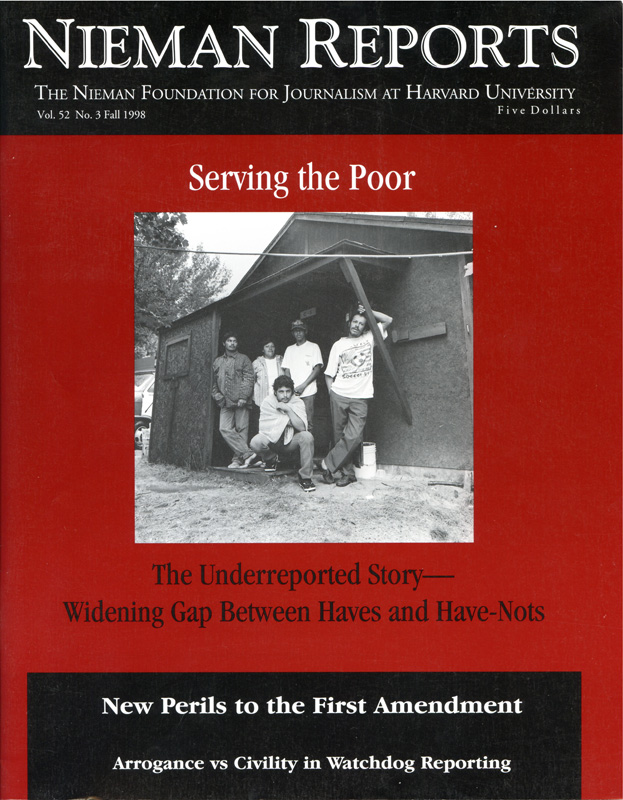Poverty is clearly something of our own doing, but the non-poor are no longer moved to take concerted action to alleviate it. This is not because they think the solution is too difficult or expensive, but because they have lost confidence that any large-scale plan will work. They may, of course, lend assistance on a personal level, doing good in minute particulars. But the notion that this can be part of a program with more cosmic meaning, a program that promises to eradicate poverty for once and for all, founders on the apprehension that humans exercise very little control over the course of development of the social reality they themselves have created.
Not everyone, of course, is willing to live with this uncomfortable and paralyzing combination of ideas. Religious faithful who seek to tailor themselves to a God-given reality persist, as do social reformers who seek to tailor reality to a utopian vision. But if the growing indifference to poverty is any guide, it points to the conclusion that these groups no longer represent majority opinion or sway public policy. Those among the non-poor who are unmotivated to grapple with a problem for which they can discern no solution find it more bearable simply not to think about it. This choice includes ordering where they live, where their children go to school, what they read and what they expose themselves to in such a way that poor people intrude minimally upon their lives and consciousness.
Actually, this strategy does entail a solution of sorts to the problem of poverty, and a remarkably clean and cheap solution at that: to make poverty disappear by the simple expedient of not acknowledging it.
F. Allan Hanson, Professor of Anthropology, University of Kansas, in The Cato Journal, Volume 17, Number 2, fall 1997 © Cato Institute.
Not everyone, of course, is willing to live with this uncomfortable and paralyzing combination of ideas. Religious faithful who seek to tailor themselves to a God-given reality persist, as do social reformers who seek to tailor reality to a utopian vision. But if the growing indifference to poverty is any guide, it points to the conclusion that these groups no longer represent majority opinion or sway public policy. Those among the non-poor who are unmotivated to grapple with a problem for which they can discern no solution find it more bearable simply not to think about it. This choice includes ordering where they live, where their children go to school, what they read and what they expose themselves to in such a way that poor people intrude minimally upon their lives and consciousness.
Actually, this strategy does entail a solution of sorts to the problem of poverty, and a remarkably clean and cheap solution at that: to make poverty disappear by the simple expedient of not acknowledging it.
F. Allan Hanson, Professor of Anthropology, University of Kansas, in The Cato Journal, Volume 17, Number 2, fall 1997 © Cato Institute.



